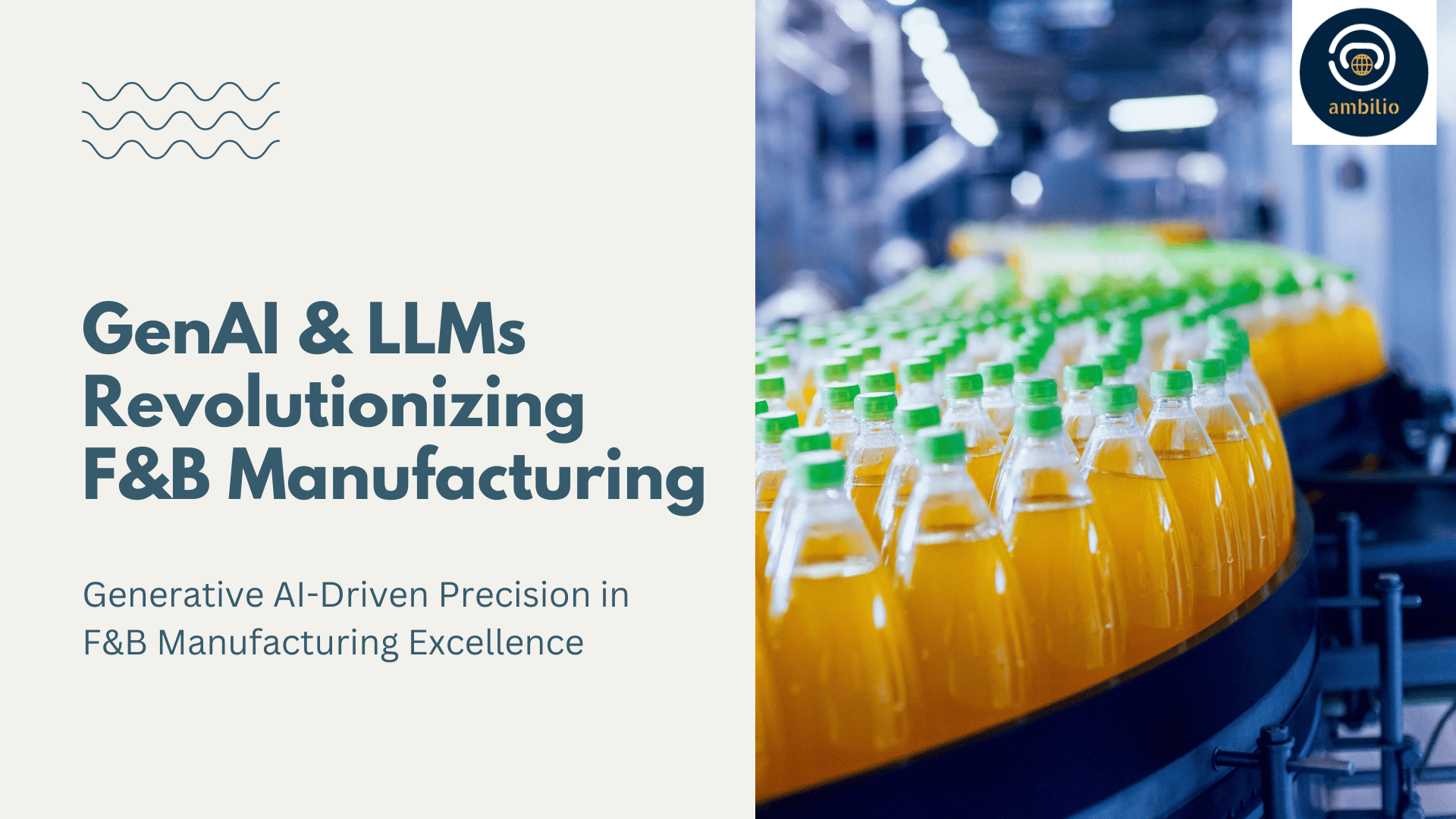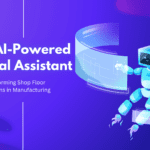In the dynamic landscape of manufacturing, the integration of cutting-edge technologies like Generative Artificial Intelligence (AI) and Large Language Models (LLMs) has heralded a new era of innovation and efficiency. Particularly in the food and beverage industry, where precision, quality, and market responsiveness are paramount, the potential of these AI-driven technologies is immense. This coverage aims to explore five pivotal use cases where Generative AI in Manufacturing that can revolutionize operations, bolstering product development, quality control, supply chain optimization, marketing, and trend analysis.
1. Product Development and Innovation
Solution Proposed: Leveraging Generative AI and LLMs to foster novel product ideation based on market trends, consumer preferences, and emerging ingredients.
Technical Execution: Generative AI algorithms meticulously analyze extensive recipe databases, historical market trends, and emerging consumer preferences. Simultaneously, LLMs scour through vast volumes of customer reviews, feedback, and social media sentiments. The fusion of these technologies enables the generation of innovative product concepts, considering taste profiles, dietary preferences, and trending ingredients.
Benefits: This approach fosters an agile and responsive product development cycle, allowing manufacturers to swiftly adapt to evolving market demands. The generated ideas are rooted in data-driven insights, reducing the risk of product failures and capitalizing on emerging trends.
Expected ROI: Successful implementation could yield a remarkable 20-30% increase in revenue from new product launches. This uplift is primarily attributed to the resonance of these new offerings with targeted consumer segments and their alignment with market trends.
2. Quality Control and Assurance
Solution Proposed: Integrating AI-driven systems for real-time quality monitoring during the manufacturing process.
Technical Execution: AI-driven systems are integrated into the manufacturing process, continuously monitoring various parameters such as temperature, pH levels, and texture through sensory data analysis. LLMs contribute by structuring comprehensive quality control protocols based on industry best practices and regulatory standards.
Benefits: Enhanced quality control leads to a consistent product output, reducing instances of defects, recalls, and waste. The improved reliability and consistency of products bolster consumer trust and brand loyalty.
Expected ROI: The anticipated reduction of 15-25% in quality-related costs, including wastage and rework expenses, significantly contributes to cost savings. Additionally, improved product consistency can lead to increased market share and customer satisfaction, further boosting revenue.
3. Supply Chain Optimization
Solution Proposed: Implementing AI algorithms for accurate demand forecasting, inventory optimization, and logistics streamlining.
Technical Execution: AI algorithms analyze historical sales data, market trends, and external factors impacting demand. These insights are utilized to accurately forecast demand and optimize inventory levels. LLMs contribute by assisting in generating predictive models that adjust dynamically to market fluctuations.
Benefits: Optimized inventory levels prevent overstocking or stockouts, reducing carrying costs and minimizing the risk of obsolete inventory. Streamlined logistics and accurate demand forecasting ensure efficient resource allocation.
Expected ROI: An estimated reduction of 20-30% in inventory carrying costs and logistics expenses significantly contributes to cost savings. The improved efficiency and accuracy in forecasting also lead to increased sales and customer satisfaction.
4. Personalized Marketing and Customer Engagement
Solution Proposed: Utilizing AI to analyze customer preferences and generate personalized marketing content and recommendations.
Technical Execution: AI algorithms process vast datasets encompassing customer demographics, purchasing behavior, and preferences. LLMs assist in crafting personalized marketing campaigns by generating tailored content, recommendations, and offers.
Benefits: Personalized marketing strategies resonate more effectively with customers, leading to increased engagement, higher conversion rates, and improved brand loyalty. Customers feel more connected to the brand, fostering long-term relationships.
Expected ROI: Anticipated sales increase of 15-25% owing to improved customer targeting and satisfaction. Additionally, higher engagement and loyalty lead to reduced customer churn and increased customer lifetime value.
5. Predictive Analysis for Consumer Trends
Solution Proposed: Leveraging AI to predict emerging food and beverage trends based on market analysis and consumer behavior.
Technical Execution: AI algorithms analyze diverse data sources, including social media, market reports, and consumer behavior, to identify emerging food and beverage trends. LLMs generate comprehensive reports on anticipated consumer preferences and market shifts.
Benefits: Proactive identification of trends enables manufacturers to align product development strategies with market demands, reducing time-to-market for new offerings. This anticipatory approach ensures a competitive edge and relevance in the marketplace.
Expected ROI: Predicted revenue increase of 20-30% from successful launches of trend-responsive products. Additionally, reduced time-to-market enhances market competitiveness and potentially secures a larger market share.
Conclusion
These transformative solutions represent a glimpse into the immense potential of Generative AI and LLMs in reshaping the food and beverage manufacturing landscape. Ambilio offers tailored solutions harnessing the power of these technologies, enabling manufacturers to thrive in an increasingly competitive market. Embracing these innovations isn’t just an option—it’s a strategic imperative to lead the charge towards industry evolution and sustained growth. Connect with Ambilio today to unlock unparalleled possibilities in food and beverage manufacturing.



